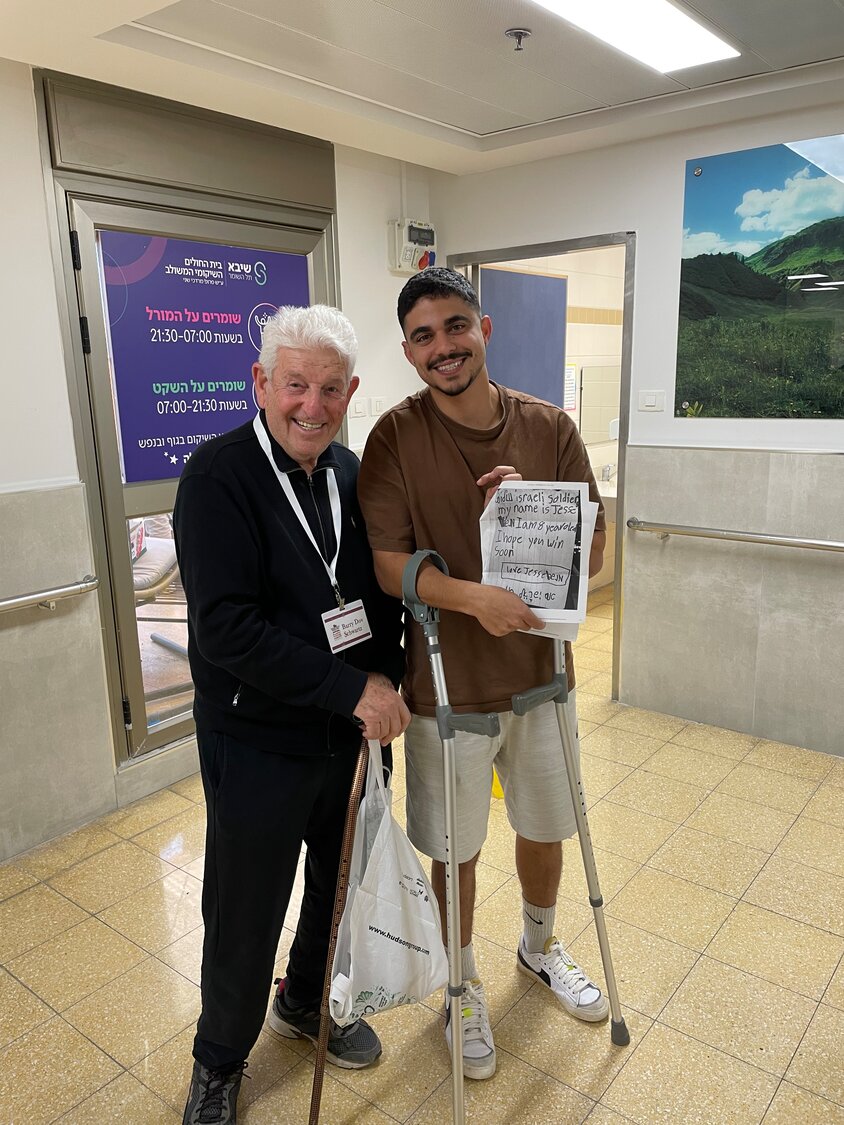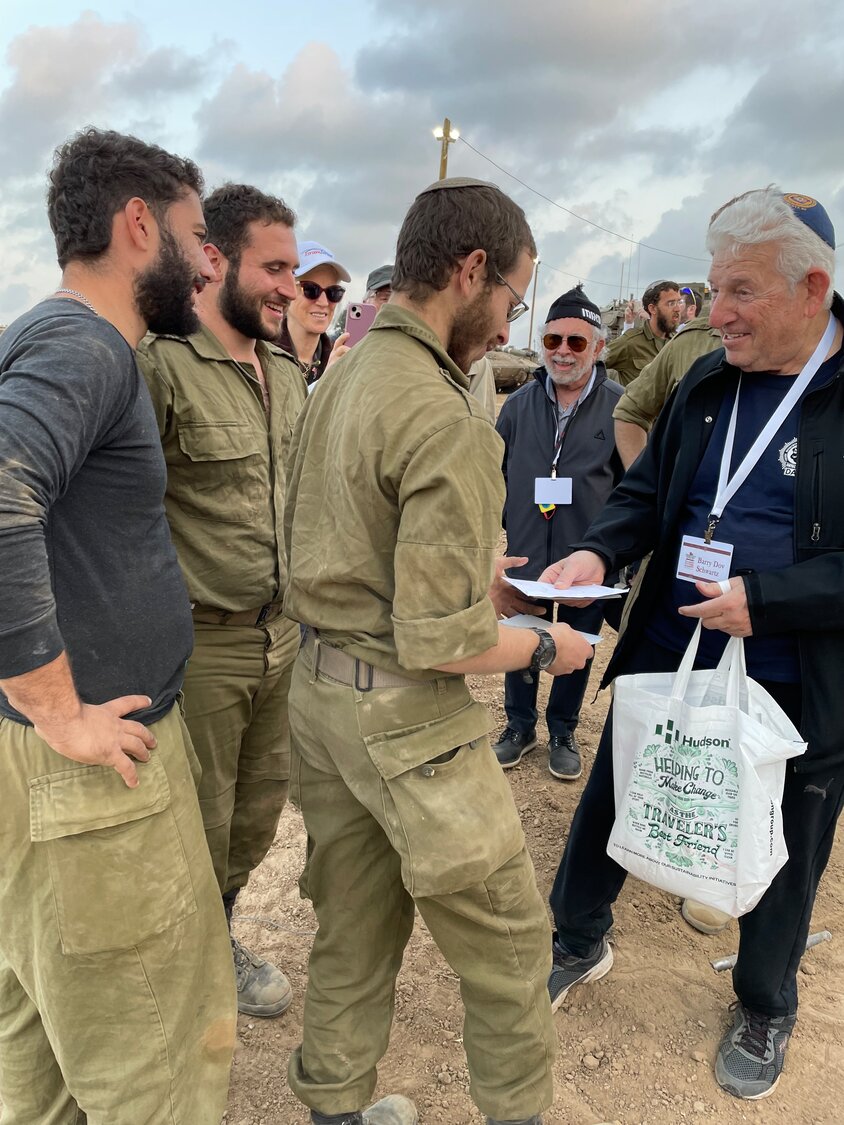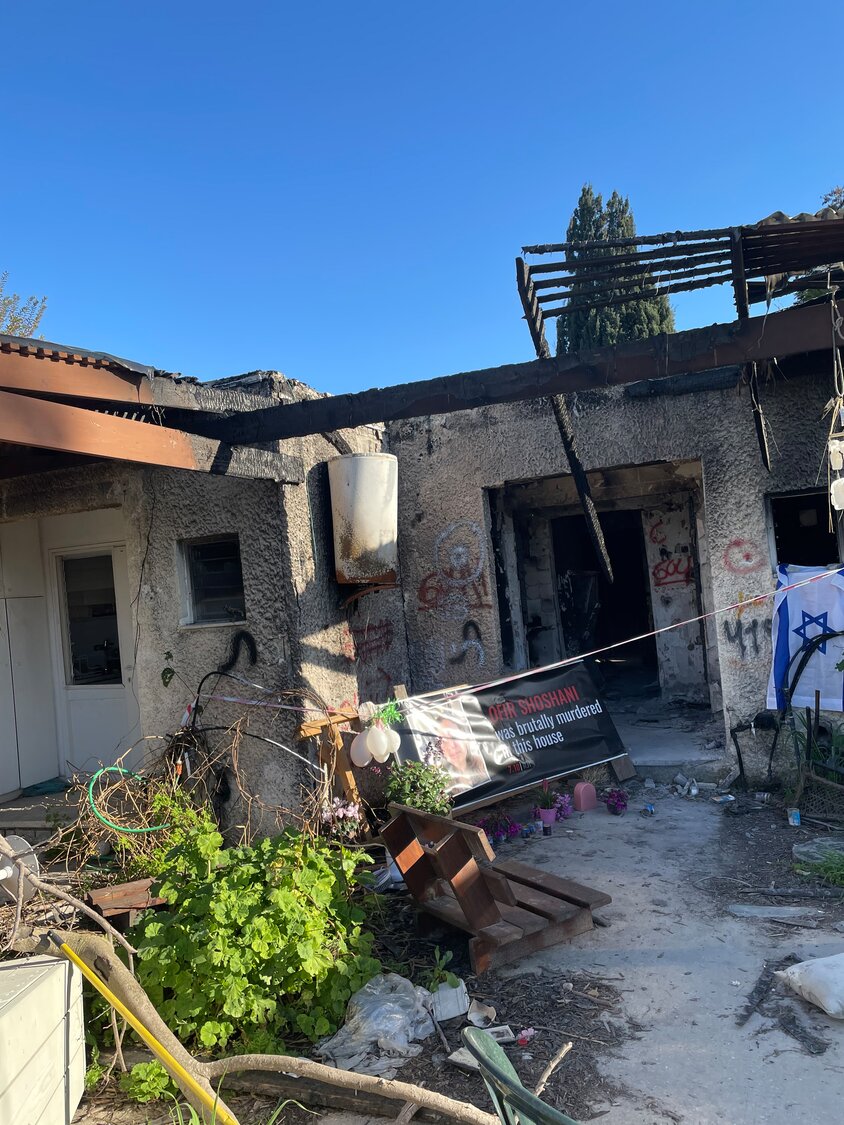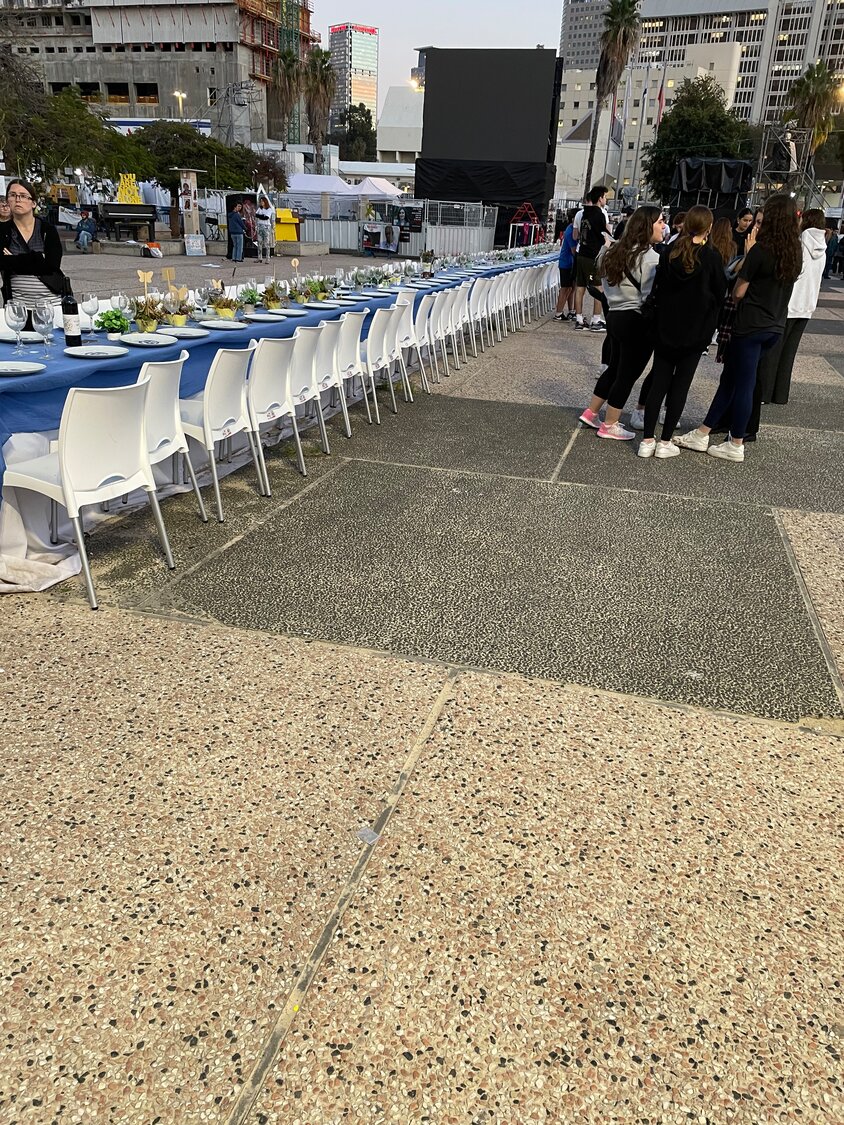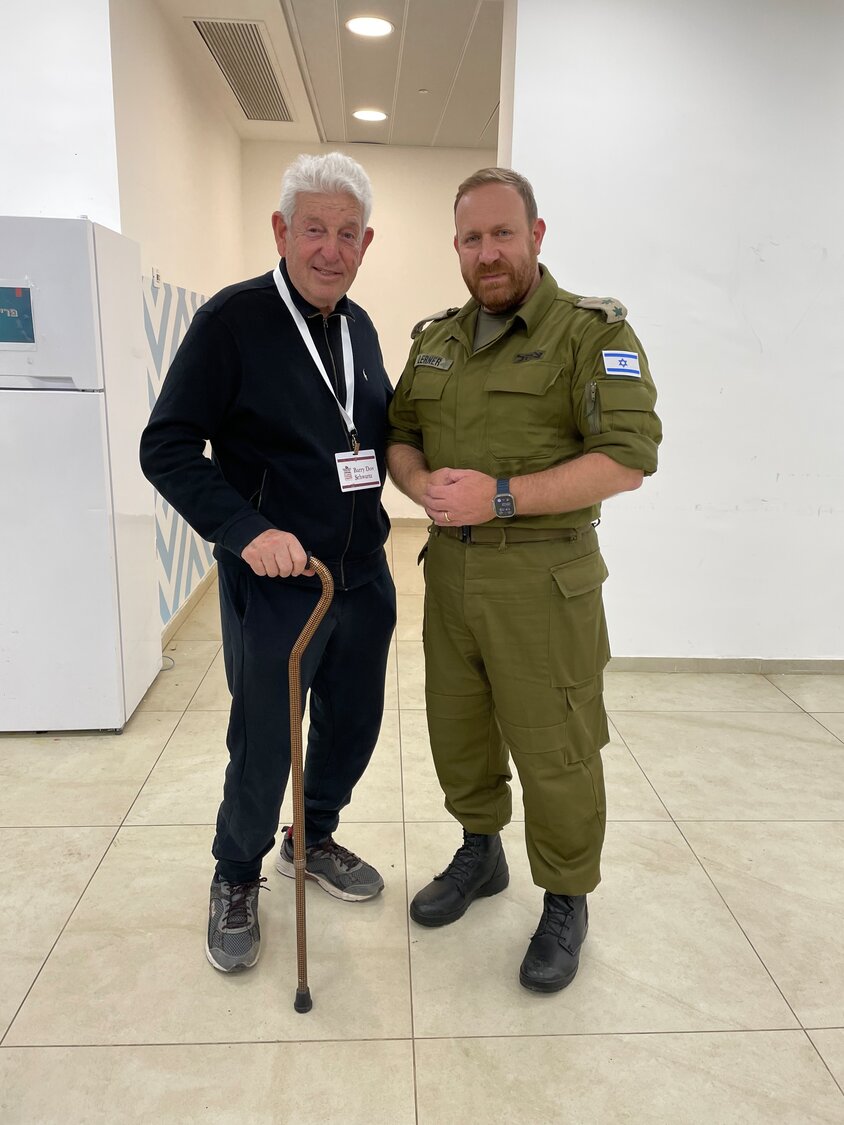Rabbi Barry Schwartz delivers 200 letters to Israeli soldiers, citizens
Rabbi Emeritus Barry Dov Schwartz, of Congregation B’nai Sholom-Beth David, recently spent a week in Israel, near the Gaza border, as part of a goodwill mission sponsored by the Israel Law Center.
“It was exhausting, sad and exhilarating,” Schwartz told the Herald. “It will take me weeks to process and absorb everything I experienced.”
Schwartz, 83, led the Rockville Centre synagogue for 37 years before retiring in 2010. He published a memoir, “A Man of Spirit,” in 2022, based on his experiences working alongside a Nazi hunter, marching for civil rights in Washington and serving as a chaplain during the Vietnam War.
On his trip, he visited several places that were attacked by Hamas terrorists on Oct. 7.
“They had planned this for years, to attack and infiltrate the kibbutzim,” Schwartz said. “When you see it and witness it, it’s altogether different.”
He visited four communities — Sderot, Be’eri, Kfar Aza and Nirim — that were targeted by Hamas during the early-morning attacks.
“We saw what they did,” Schwartz said. “How they ransacked and bombed our homes.”
The attacks claimed the lives of at least 1,200 people, who were massacred in their homes, on the streets and at the Nova Music Festival. The attacks, which included numerous missile strikes, were a coordinated assault that took place during Simchat Torah — an annual Jewish holiday following the festival of Sukkot, which marks the beginning of a new cycle of Torah readings — and resulted in the capture of more than 250 hostages.
During his week-long mission, Schwartz saw the impact of the attacks up close. He visited the kibbutzim where Hamas terrorists killed dozens of people. He walked through one of the tunnels used to infiltrate border cities. He saw a police station near the border that was destroyed by terrorists intent on disabling efforts by law enforcement to respond.
Schwartz said that after seeing the impact of the attacks up close, he could not believe that there are so many people in the United States protesting against the victims.
“Many want to reward the enemy for what they did,” Schwartz said. “I know how Israelis feel. They feel alone. They feel isolated. I wanted to show them there are people who care.”
He explained that since there are so many men and women serving in the Israel Defense Forces, there have been shortages in the workforce. That’s why Schwartz and others volunteered to spend an entire afternoon in the fields, picking avocados and Clementine oranges.
“All the time we heard bombings,” he said. “When the red siren went off, you only had 15 seconds to get into a safe area.”
Months after the attacks, Schwartz said, the Israeli people are simply trying to get back to life as usual. Stores are beginning to open again and people are going back to work once more.
“Some might think that the Israelis are angry,” he said. “They’re not. They just want to live their lives. If anything, they’re angry at themselves for not being more vigilant.”
Throughout his mission, Schwartz carried a bag filled with more than 200 letters, written by Rockville Centre children and adults, which he gave to Israeli soldiers and citizens.
“They asked me if I would distribute them,” he said. “You never thought a letter from a stranger would be received so enthusiastically.”
One soldier, he recounted, was so taken with the gesture that he affixed his letter to his tank. Schwartz took the letters everywhere he went, even to a hospital where he visited wounded IDF soldiers.
The mission was organized by the Israel Law Center, an organization that fights terrorism in the courts by bringing lawsuits against those who support violent acts and warfare. The group comprises Jews and non-Jews across the United States, some of whom made the trip to show their support.
At each stop, they heard from a number of people about the attacks, and each night, at their hotel in Tel Aviv or Jerusalem, they took part in panel discussions with lawyers, journalists and other experts.
“It was very emotionally straining,” Schwartz said. “At the same time, it was beautiful to see the Israeli people united and full of love.”
During one presentation, he recalled, a woman described how her son was killed by friendly fire. She said that she had no hatred in her heart, and that there are friendly-fire incidents in every war. Instead, she suggested that people embrace one another and respond with more love.
“The main concern of every Israeli, no matter what the political nuances,” Schwartz said, “is to get those hostages home.”
He said that in Tel Aviv, people have set up a long table with place settings for the roughly 130 hostages still being held in Gaza, in the hope that they will soon come home and eat with their families once more.
Despite the sadness of his trip, Schwartz said, it was important for him to bear witness to what was happening in Israel, and to show support and goodwill.
“I really don’t know what the solution is,” he said. “The world has to remember we didn’t start the war … because right now there is too much going against the victims and not against the perpetrators.”

 46.0°,
A Few Clouds
46.0°,
A Few Clouds 